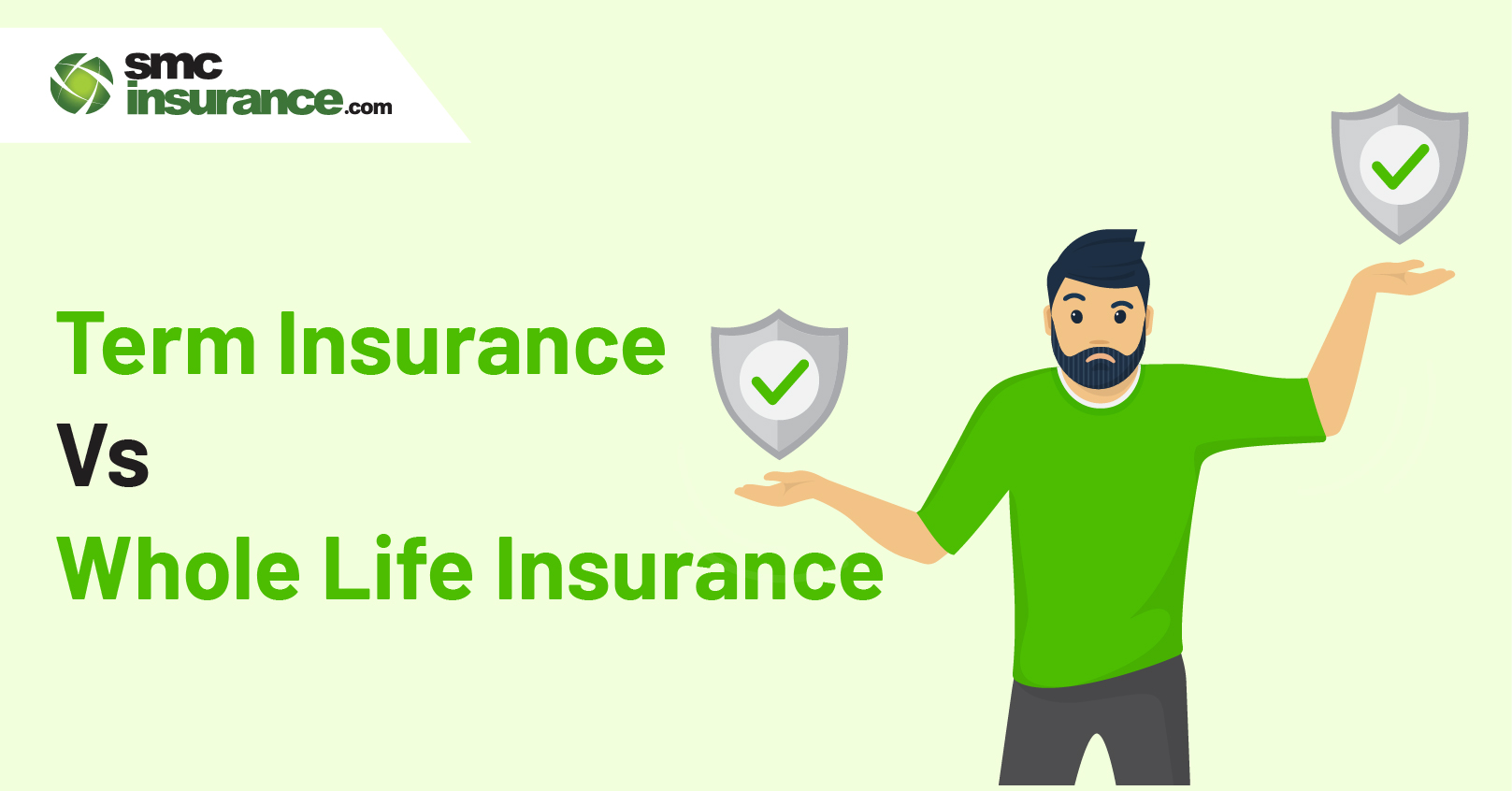Life insurance is continuing to gain popularity owing to the security it offers. With a life insurance policy, you get the promise of financial stability for your loved ones, even when you aren't around.
The life insurance market is replete with many options, two of the most common being Term Insurance and Whole Life Insurance.
It's important to know the difference between these two types of life insurance policies, so you can make an informed decision and choose the policy that fits YOUR needs the best.
Let's have a look!
Term Insurance
A term insurance plan is one of the most simple and affordable ways you can guarantee financial security to your loved ones even in your absence. All you need to do is pay the premiums on time and your family will receive a fixed sum of money if you, unfortunately, pass away during the policy duration.
Important: Term insurance is a pure risk cover. If you survive the policy duration, you will not receive any benefits.
Whole Life Insurance
A whole life insurance policy, as the name suggests, covers you for your entire life (till you are 99-100 years old). It offers guaranteed returns in two ways.
- If you pass away during the policy term, your family receives the cover amount as the death benefit.
- If you survive the policy term, you receive the cover amount as the maturity benefit.
This plan is a good choice if you want to create a financial safety net for your family and leave behind a legacy for them.
Now that you know how both Insurance policy works, we can dig deeper into each policy and see how they differ. It will help you decide which plan is the best choice for you and your loved ones.
Differences: Whole Life Insurance vs Term Insurance
| | Whole Life Insurance | Term Life Insurance |
| Term and Tenure | The policy coverage is for your entire lifetime - till you are 99 or 100 years of age. | The policy coverage is for a fixed number of years. |
| Benefits | Guaranteed returns in the form of maturity and death benefits. | Only a death benefit is given. |
| Goal | The goal is to make sure that your family is financially secure by leaving behind a legacy for them. It will ensure that dependent family members will be taken care of. | The goal is to protect the family financially till they are dependent on you. |
| Maturity Benefit | If you survive the policy term you can claim the sum assured as a maturity benefit. | You cannot claim anything if you survive the policy term. |
| Cost | The premium values are higher as the coverage is for a lifetime. | The premium values are comparatively lower. |
| Loan Provision | There are options to avail of a loan if you have completed three years of the policy term. | You cannot avail of a loan against a Term insurance policy. |
| Cash Value | Some insurance providers offer a cash value against every premium payment you make. This can be used to make future premium payments or money can be borrowed against it. | There is no cash value offered for the premiums you pay. |
Conclusion
After reading the above article, we hope that you are now able to differentiate and decide which Insurance policy would best fit your needs. We recommend that you make a wise decision in choosing the right policy for you and your loved ones.

 Taxi Insurance
Taxi Insurance

